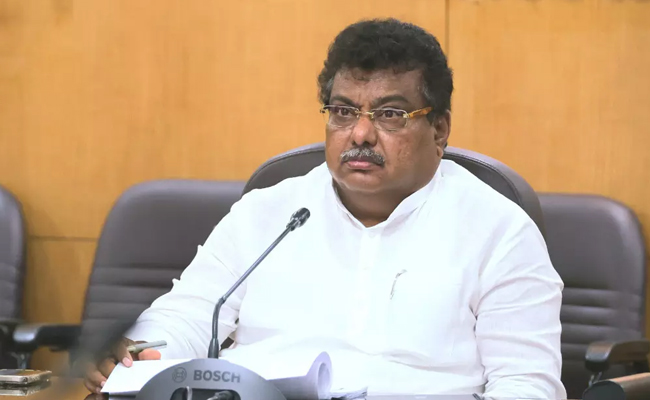The Yenepoya (Deemed to be University) from Mangalore, Karnataka is featured for the first time in the global Top 500 Times Higher Education (THE) Impact rankings from India.
Yenepoya is ranked within top 101-200th position globally for Sustainable Developmental Goals (SDG’s) SDG 3 (Good Health and Well Being); SDG 4 (Quality Education); and SDG 5 (Gender Equality) categories, and within Top 201-300th for SDGs 1 (No Poverty) and SDG 6 (Clean water and Sanitation), and is featured within top 301-400 under SDG 17 (Partnership for the Goals) and within top 301-400 in Overall category (65.5 points out of 100).
From India 26 Universities were featured in this year’s Global Impact Rankings.
The University secured shared 3rd place among Indian Universities that had made into the list of this year global rankings.
The Times Higher Education Impact rankings are the only global performance tables that assess University against the United Nations SDG’s. It has very finely calibrated indicators to provide comprehensive and balanced comparisons across three broad areas of research, outreach and stewardship among global Universities.
The University was mapped for the progress made against the United Nations SDG’s. This ranking provides an indication on how universities are putting their energies into combating gender inequality, tackling climate change, encouraging peaceful societies and putting measures in place to become more sustainable.
The United Nations SDG’s were established in 2015 in order to tackle some of the biggest global challenges by 2030. The goals focus on a number of issues including improving gender equality, tackling poverty, providing better healthcare, providing quality education for all and encouraging economic growth.
Based on all the 17 goals, the universities have to submit the data on how they were contributing to achieving these goals. With this ranking, the University is now entered the league of global pioneers – who have demonstrated commitment not just to supporting the Sustainable Development Goals through its teaching, research and knowledge transfer, but also to embodying the goals in its own institution’s internal practices, policies and procedures and providing verifiable evidence of activities. The University had provided evidence on how these goals were being incorporated into its governance, and how University was holding self accountability to make a real difference.
This THE Impact Rankings are particularly key in helping students find a university that champions the causes that they care about. These rankings move away from lauding universities only on research output and papers published, instead shine a light on those implementing tangible ways to make a difference in the world and to their students.
The Chancellor of the University, Mr. Yenepoya Abdulla Kunhi said we are delighted to be listed among the top global Universities in impact rankings and I dedicate this success to our stakeholders under the leadership of our Pro Chancellor Mr. Farhaad Yenepoya, Vice Chancellor Dr. M. Vijayakumar, and Dr. Arun Bhagwath, Deptuy Director, who have consistently put efforts towards achieving this feat. We will continue to strive hard to contribute towards providing solutions to complex global and local challenges through education, research and by creating leaders who can create a positive impact at their local and regional communities in line with the SDG of UN.
Let the Truth be known. If you read VB and like VB, please be a VB Supporter and Help us deliver the Truth to one and all.
Bengaluru (PTI): Karnataka Minister M B Patil on Tuesday chaired meetings with industry representatives from the aerospace and defence, machine tools, auto/EV, and green energy sectors to discuss sector growth and government support measures.
The meetings were attended by leading industrialists and their representatives, with some participating virtually.
Speaking on the occasion, the minister for Large and Medium Industries said Karnataka is at the forefront of the country’s aerospace and defence sectors.
He noted that Suzuki and Toyota plan to launch aerial taxi services in Japan by 2028, with Bengaluru-based Sasmos supplying electrical equipment for the project.
Industrialists suggested introducing similar “fly-taxi” services in Karnataka through an appropriate policy, which Patil said would be examined seriously.
The minister highlighted the need to establish testing centres and Common Facility Centres for the aerospace and defence industries and assured that these facilities would be provided.
Suggestions were also made to prepare a comprehensive roadmap for sector growth.
Karnataka has urged the Central Government to approve Defence Corridor projects in the Bengaluru North–Kolar–Chikkaballapur and Dharawada–Vijayapura–Belagavi regions.
Industrialists also suggested a corridor between Bengaluru and Mysuru, Patil said.
He said Karnataka aims to become a hub for defence electronics manufacturing, with plans to establish a 200-acre Defence Electronics Park and a 100-acre Avionics and Sensor Park.
These projects will be implemented once the Special Investment Region is operational, and land availability will not be an issue.
On the machine tools sector, Patil said the industry has recorded an annual turnover of Rs 36,500 crore and is witnessing steady growth.
Large-scale exhibitions have increased demand, and the state must strengthen its capabilities to develop control systems for heavy machinery. One testing unit is already operational in Bengaluru, with another planned for Tumakuru. Expansion of vocational training institutes in industrial areas is also underway.
In the Auto and EV sector, Vision Group members highlighted the need for a network of dry ports and more EV charging stations across the state.
Patil noted that the Tata Group is manufacturing EV buses in Dharawada for nationwide supply. Plans for mini excavator production and export facilitation were also discussed, along with the establishment of a testing facility for two-wheeler EVs.
For the Green Energy sector, the group emphasised the need for a suitable policy on battery-based energy storage and the establishment of data centres.
Patil assured that the government will seriously consider all suggestions and respond positively.





_vb_21.jpeg)